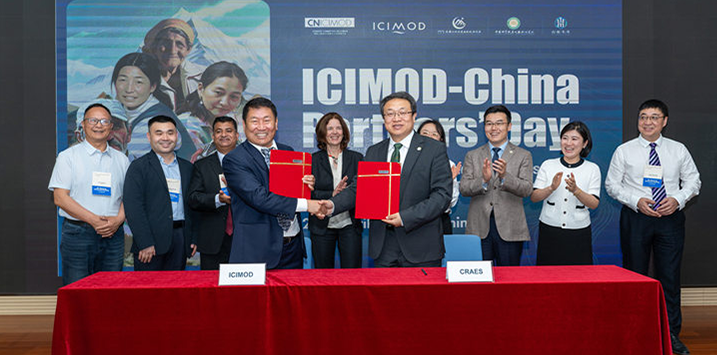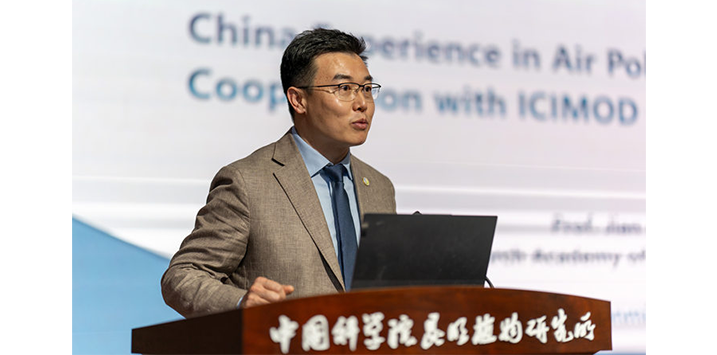
On April 23, 2025, the Chinese Research Academy of Environmental Sciences (CRAES) was invited to participate in the ICIMOD-China Partners’ Day, hosted by the International Centre for Integrated Mountain Development (ICIMOD) in Kunming, where the two parties formally signed a Memorandum of Understanding (MoU). Dr. Quan Zhanjun, Vice President of CRAES, attended the signing ceremony.
Established in 1983 and headquartered in Nepal, ICIMOD is an intergovernmental knowledge and learning center with eight regional member countries, including Afghanistan, Bangladesh, Bhutan, China, India, Myanmar, Nepal, and Pakistan. The organization is dedicated to fostering scientific research and knowledge-sharing innovation to improve the lives and livelihoods of the people of the Hindu Kush Himalaya region (HKH), and to strengthening regional cooperation for conservation and sustainable mountain development. During the event, CRAES shared China’s practical experiences in air pollution control, particularly the progress made in policy-making, scientific and technological support for the government, and cross-departmental collaboration.
On behalf of CRAES and ICIMOD, Vice President Quan and Director General Pema Gyamtsho signed an MoU which outlines further cooperation in key areas such as air pollution prevention and control, climate change mitigation, and biodiversity conservation in the HKH. Both parties will strengthen joint research, technical exchanges, and knowledge sharing, leveraging their respective strengths in scientific research, technology, and policy to develop innovative solutions. This collaboration aims to provide ICIMOD member states with more feasible technical support and science-based policy recommendations.
The signing of this MoU marks the formal establishment of a partnership between CRAES and ICIMOD, as well as the expansion of CRAES’ collaborative network in Nepal and South Asia. It lays the foundation for advancing international cooperation in mountain sustainability and developing the Green Belt and Road Initiative in the region. Moving forward, CRAES will continue to foster international collaboration, promote global scientific exchanges, and facilitate the international application of research results, leveraging China’s strengths to advance global sustainable development.

